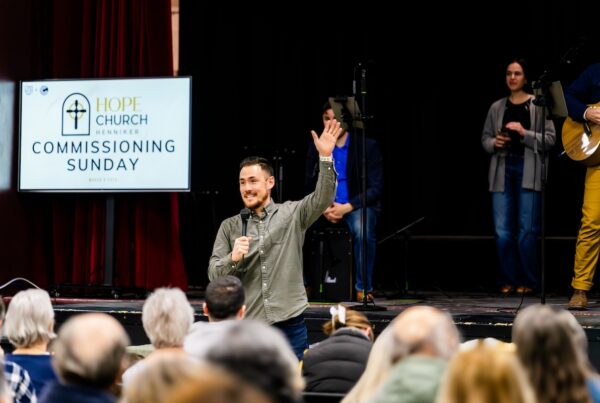Language not only reflects culture, it shapes culture. As a leader, our job is to shape culture in such a way that we become salt and light in the cities and communities in which we seek to live out the gospel. One of the most important questions we must ask as pastors is this: ‘Are our people conversant in the gospel to the degree that the gospel is able to inform and transform every aspect of their lives?’
Pastors must ask: ‘Are our people conversant in the gospel to the degree that it is able to inform & transform every aspect of their lives?’
Learning to be fluent in the gospel requires repetition, lots of it. However often times when unpacking the gospel and its application for different aspects of our lives, we cover an aspect once and then move on. We tend to think that once we’ve covered a facet fully, everyone understands. We forget that most people need to hear, think about, and discuss a new concept several times before it soaks in. Yet, as teachers and leaders, we can fear boring people so much that we move on long before the truth of the gospel has sunk deeply into our people’s hearts and minds. This causes people to not experience deep gospel transformation and lead people into gospel ministry. We confuse familiarity with understanding. To keep from doing that, I try to keep in mind four stages of gospel fluency: exposure, familiarity, understanding, and ministry.
Stage 1: Gospel Exposure
Exposure is by far the most exciting stage. It energizes us to have an “aha” moment. It’s fun to be exposed to new (although not really new) aspects of the gospel, and to wrestle with concepts and principles for the first time. For those of us who teach or train others, this is the stage at which we receive the most positive feedback, so it’s often the stage we prefer to live in. But at this point, no one has really learned anything yet. They’ve only heard a bunch of new and exciting stuff. The danger of gospel exposure is that people are exposed to a small enough dose of the gospel that they become inoculated to its real power.
Stage 2: Gospel Familiarity
Familiarity is the stage at which a few people in the room start to tune out. The really bright ones remember the ideas and know ahead of time where the discussion is going. Their eyes glaze over and their body language shouts, “I’ve heard this before.” This is the point at which many pastors and leaders bail out. For fear of putting someone to sleep, we anxiously search for something new and fresh we can expose people to as if the depth, beauty and riches of the gospel are not enough. I have discovered that the time I am (or my leaders are) getting bored is the time the truth of the gospel is just getting familiar for everybody else.
While I’m certainly not advocating boring teaching, I am advocating that we not let a few bright people who get it the first time short-circuit the learning of the vast majority who need to hear and discuss the truth of the gospel multiple times before they get it. The truth is that many of those who are most certain they got it the first time didn’t get it at all. They’re just familiar with the concept. They recognize it, but still can’t apply or put it into practice on their own. Gospel-centered jargon has become familiar terminology in many churches. The danger is that we our conversant enough to speak the language but not let it penetrate deeply into our hearts and minds.
Stage 3: Gospel Understanding
Understanding doesn’t take place until people can fill in the blanks before we speak. It’s knowing the gospel well enough to apply and explain it without being prompted. It’s a stage at which few people arrive because no one ever takes the time to get them there.
To bring people to the point of gospel understanding, we need to think of gospel fluency as something to be dripped into people’s lives rather than poured in all at once. We need to approach it more like a glacier than an avalanche. An avalanche is full of power and fury. It looks impressive, but ten years later you’d never know it happened. Glaciers, on the other hand, are boring. They look like nothing is happening, but a thousand years later, they leave behind a Yosemite. Avalanches make a ruckus. Glaciers change the world.
Stage 4: Gospel Ministry
The final stage of gospel fluency is when one comes to a deep, functional understanding of the gospel in which they are able to minister powerfully out of the well spring of life. The gospel flows naturally as they interact with people in their everyday conversation. They are able to discern the redemptive longings in someone’s story, and then retell that story in light of the story of God. This retelling not only helps a person to make sense of their own lives, but also redeems, sanctifies, and restores the brokenness of their lives.
By keeping these four stages in mind, I’ve been able to avoid the natural temptation to move on from an aspect of the gospel too quickly. It also reminds me of how quickly we can forget what we once thought we knew. Does the language your people speak reflect that the gospel has penetrated deeply into their hearts and shapes the way they interact together as a church family and engage the lost around them with the gospel for everyday life?
Chan Kilgore is the Acts 29 US Southeast Regional Director for Florida. He is also the lead pastor of CrossPointe Church in Orlando.











